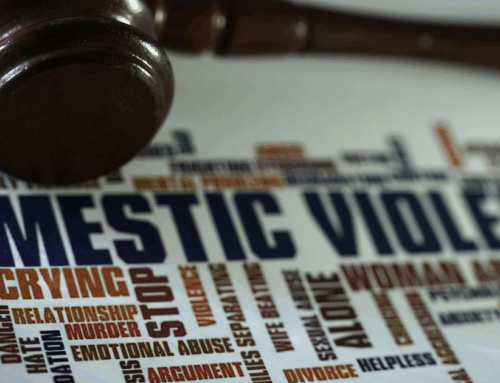What is Indiana’s Stop and Identify Law?
Confused About When You Need To Show Your ID To Police in Indiana?
Understanding your rights when interacting with law enforcement is crucial. Like many states, Indiana Stop And Identify Law grants police certain powers under specific circumstances. This blog post will delve into the details of this law, explaining your rights and responsibilities during a police encounter.
It’s essential to be informed to protect yourself while also respecting the authority of law enforcement.
Quick Summary:
- In Indiana, the Stop and Identify Law allows law enforcement to briefly detain and question individuals under certain conditions. When stopped by police, you are required to provide your name and address. This law is designed to help officers confirm identities and manage situations effectively. You do not need to carry physical identification but must verbally provide your name and address during a lawful stop.
- For a stop to be considered valid in Indiana, it must be based on reasonable suspicion, which means law enforcement must have specific, articulable facts suggesting criminal activity. The officer must also be acting within their jurisdiction and the stop should be related to law enforcement duties, such as investigating suspicious behavior or enforcing traffic laws. Additionally, the duration and scope of the stop must be limited to addressing the specific reason for the encounter, and the justification for the stop should be based on objective observations.
- During a lawful stop, you are required to provide your name and address but have the right to remain silent beyond that. You can also ask for the officer’s name, badge number, and the reason for the stop to ensure transparency. If you believe the stop is unlawful or your rights are being violated, you can contest it later with legal assistance and file a complaint if necessary.
- Failing to provide your name and address during a lawful stop can result in misdemeanor charges, potential fines, or other legal penalties. It may also escalate the situation, potentially leading to additional charges such as obstruction of justice.
If you’ve been stopped by law enforcement in Indiana, it’s crucial to understand your rights. While officers have the authority to conduct brief detentions under specific circumstances, you also have rights that must be respected.
What is Indiana’s Stop and Identify Law?
Indiana’s Stop and Identify Law (Indiana Code § 34-28-5-3), also known as the “Terry Stop,” allows law enforcement officers to briefly detain and question individuals under specific circumstances.
The law mandates that individuals must identify themselves to police officers during a lawful stop or detention. This helps officers confirm identities and manage situations effectively.
What is Considered a Valid Stop?
A valid stop by law enforcement is governed by principles of reasonable suspicion and legal authority. Here’s what constitutes a valid stop in Indiana:
Reasonable Suspicion
Law enforcement officers must have reasonable suspicion that a crime is occurring, has occurred, or is about to occur. This suspicion must be based on specific and articulable facts rather than vague or general impressions. For example, if an officer observes behavior that suggests criminal activity or if there is a clear traffic violation, this can justify a stop.
Lawful Authority
The officer conducting the stop must be acting within their jurisdiction and have the authority to perform the stop. This means the officer should be in a location where they have the legal right to stop and detain individuals.
Basis for the Stop
The reason for the stop must be legitimate and related to law enforcement duties. In the case of a traffic stop, the basis could be a traffic violation such as speeding or a broken tail light. For other stops, it could be based on observed suspicious behavior or reports of criminal activity.
Duration and Scope
The stop must be brief and limited to the purpose of addressing the reason for the stop. For example, in a traffic stop, the interaction should focus on the traffic violation and not extend beyond what is necessary to issue a citation or warning. The scope of the stop should be confined to investigating the specific reason for the stop.
Objective Facts
The justification for the stop should be based on objective observations and evidence. Officers must be able to articulate the facts or circumstances that led them to reasonably suspect that criminal activity was occurring.
If a stop does not meet these criteria, it may be considered unlawful. Any evidence obtained during an unlawful stop may be challenged in court, potentially leading to the exclusion of that evidence. Understanding these criteria can help ensure that interactions with law enforcement are conducted in accordance with legal standards.
Am I Required to Show Identification?
You are required to show identification only in specific circumstances. The Stop and Identify Law mandates that if you are lawfully stopped or detained by a police officer, you must provide your name and address when requested. This means that while you do not need to carry identification, you must verbally give your name and address during such encounters.
However, there are nuances to consider. You are not obligated to carry physical identification on you, nor are you required to provide additional information beyond your name and address. If you feel the stop or request for identification is not lawful, you can contest it later with the assistance of legal counsel.
What Are My Rights If I was Pulled to Stop and Identify?
If you are pulled over or stopped by law enforcement in Indiana and are subject to the Stop and Identify Law, you have several important rights:
- Provide Name and Address: You are required to provide your name and address when asked by a police officer during a lawful stop or detention. This is the extent of your obligation under the law.
- No Obligation to Carry ID: You are not required to carry physical identification, such as a driver’s license or ID card, on your person at all times. However, you must verbally provide your name and address if requested during a lawful stop.
- Right to Remain Silent: Beyond providing your name and address, you have the right to remain silent. You do not need to answer any additional questions or provide further information unless legally required.
- Request Officer’s Identification: You have the right to ask the officer for their name, badge number, and the reason for the stop. This helps ensure transparency and clarifies the basis for the encounter.
- Challenge Unlawful Stops: If you believe the stop or detention is not lawful, you have the right to contest it later with legal assistance. You do not have to address these concerns at the moment but can seek resolution through legal channels afterward.
- Right to Legal Counsel: If you feel that your rights are being violated or if the situation becomes complex, you have the right to seek legal counsel. You can choose to remain silent beyond providing your basic information until you have a lawyer present.
- File Complaints: If you believe your rights were violated or the stop was improper, you can file a complaint with the police department or other oversight body. This can help address any issues of misconduct or procedural errors.
Understanding and asserting these rights can help ensure that your interaction with law enforcement is conducted properly while protecting your legal protections.
What Are The Potential Consequences of Failing To Identify Myself To a Police Officer?
Failing to provide your name and address to a police officer during a lawful stop or detention can lead to several potential consequences. Not complying with the request for identification can result in being charged with a misdemeanor. This misdemeanor charge could involve fines or other legal penalties depending on the specifics of the situation and any additional circumstances.
Moreover, refusal to identify yourself might escalate the encounter with law enforcement, potentially leading to further complications or charges. For example, if an officer believes you are obstructing their duties, it might result in additional charges such as resisting law enforcement or obstruction of justice.
How Should I Handle Police Encounters?
Handling police encounters effectively involves knowing your rights, staying calm, and communicating respectfully. Here’s how you can navigate these situations:
- Stay Calm and Polite: Maintain a calm and respectful demeanor throughout the encounter. Avoid displaying aggression or hostility, as this can escalate the situation.
- Understand Your Rights: Familiarize yourself with your rights during police encounters. In Indiana, if stopped or detained, you must provide your name and address if requested. You are not required to carry physical identification, and you can refuse to answer additional questions beyond your name and address.
- Ask for Identification: If you are unsure of the officer’s identity or the reason for the stop, it’s reasonable to ask for their name, badge number, and the purpose of the stop. This helps you understand the context of the encounter.
Exercise Your Right to Remain Silent: Beyond providing your name and address, you have the right to remain silent. You can politely decline to answer further questions until you have legal representation.
- Follow Instructions: Comply with lawful instructions given by the officer. If asked to provide information or take specific actions, doing so can help ensure the interaction proceeds smoothly.
- Seek Legal Advice if Needed: If you believe the stop or search is unlawful or your rights have been violated, seek legal advice from a lawyer or legal aid organization. They can offer guidance and help you address any legal issues.
By being informed about your rights and handling the encounter with respect and clarity, you can better manage interactions with law enforcement while protecting your legal rights.
Discover The Specifics of the Stop and Identify Law in Indiana!
Understanding your rights during a police encounter is crucial. While law enforcement officers have the authority to conduct stops under specific circumstances, individuals also have rights that must be respected.
If you believe your rights have been violated during a stop and identify encounter, seeking legal counsel from Wilson & Kinsman LLC can be your best course of action. Our Indiana criminal defense lawyer can assess the situation, provide guidance, and represent your interests if necessary.
Always prioritize your safety and avoid confrontations. If you feel your safety is at risk, comply with the officer’s instructions and seek legal assistance afterward. We can help with criminal defense cases such as misdemeanor, felony, traffic tickets and more.
Share This Story, Choose Your Platform!
Give us a call!
Testimonials
Read what our former clients have to say:







